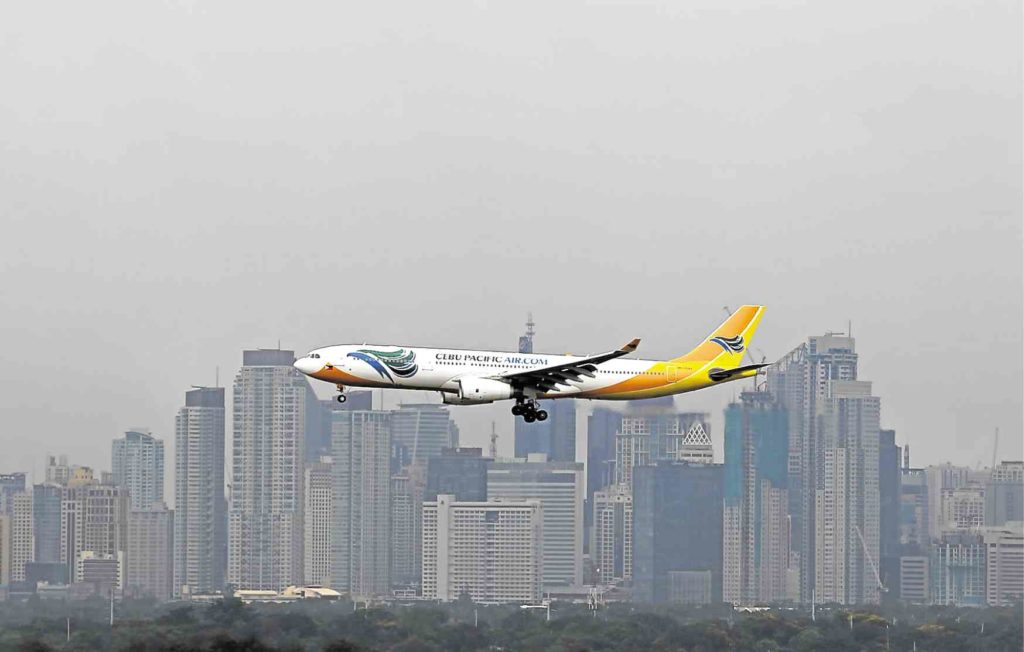Cebu Pacific Air, the country’s largest budget airline, expects passenger volume to grow 12 percent in 2018, spurred by continued strong demand for air travel.
The carrier, controlled by the Gokongwei family’s JG Summit Holdings Inc., said it aimed to fly around 22 million passengers this year. It carried 19.7 million passengers the previous year.
The carrier said domestic travel, an area where Cebu Pacific is the dominant player, was relatively flat in 2017. It noted that international air travel, however, expanded by almost 8 percent last year “with strong performance in key markets like Sydney, Dubai, Hong Kong, Narita, Taipei and Incheon.”
“Despite the challenges posed by higher prices of petroleum products, the weakening of the peso versus the US dollar, security concerns and travel advisories, we have remained relatively resilient,” a Cebu Pacific spokesperson noted in the statement.
“To reach our goal of flying 22 million passengers this year, we remain committed to offering a compelling route network where we can meet rising demand and sustain our year-round low fare proposition,” he added.
Cebu Pacific operator Cebu Air Inc. earlier disclosed that profit in 2017 fell almost 19 percent as costs, led by the higher price of oil, increased.
Cebu Air disclosed its net income in 2017 hit P7.9 billion, down 18.9 percent compared to the P9.75 billion it posted in 2016.
Cebu Air’s passenger revenue rose 7.2 percent to P49.93 billion as volume increased by 3.2 percent.
Cargo revenue, meanwhile, jumped 29.2 percent to P4.6 billion. Cebu Air’s ancillary revenues, referring to sales outside ticket revenues, increased 14.9 percent to P13.49 billion.
As noted, costs went up as fuel expenses, a major operating expense, cut into its bottom line.
Under flying operations, Cebu Air said expenses increased 21.2 percent to P23.8 billion. Cebu Air said this was because aviation fuel costs jumped 23.9 percent to P19.59 billion. The weakening peso likewise magnified the problem since fuel is imported.


